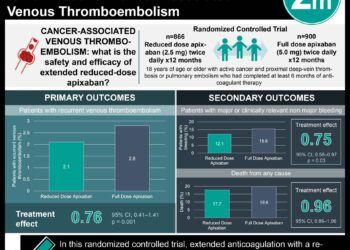Medical cannabis provides little improvement to sleep in chronic pain patients
1. In this systematic review and meta-analysis, medical cannabis and cannabinoids versus placebo were found to provide a small increase in sleep quality amongst patients experiencing chronic pain
2. Furthermore, the study highlighted an increase in nausea and dizziness as adverse effects of cannabis and cannabinoids use.
Evidence Rating Level: 1 (Excellent)
Sleep disorders affect a sizeable portion of the general population, with cannabis increasingly being studied as a component of therapy for improved sleep. Previous studies have showed a large percentage of cannabis users purchase cannabis for sleep disorders. This study addressed the lack of meta-analyses on the effect of medical cannabis and cannabinoids on impaired sleep.
This systematic review and meta-analyses of randomized controlled trials (RCTs) evaluated the effect of medical cannabis or cannabinoids on sleep. Inclusion criteria includes: 1) patients aged 18 or older with impaired sleep; 2) RCTs that compared medical cannabis to a non-cannabis control; 3) studies that collected outcome data greater than 13 days after treatment. Open-label trials and studies with patients using cannabis for recreational purposes were excluded. Study outcomes assessed measures such as effect on sleep quality, sleep disturbance, other sleep-related outcomes, and adverse events.
Results demonstrated 39 RCTs met inclusion criteria. Pooled data suggest that cannabinoids and medical cannabis lead to a small increase in sleep quality, at or above the minimally important difference (MID). Subgroup analyses showed small benefit in chronic noncancer pain and very small benefit in patients with chronic cancer pain. Cannabinoids and medical cannabis were also shown to increase the risk of adverse events such as nausea and dizziness, compared to placebo. Interestingly, study findings also suggest a decreased frequency and intensity of nightmares in patients with post-traumatic stress disorder with cannabinoid use. However, this study was limited as it assessed mostly oral cannabis and chronic pain patients, limiting generalizability to inhaled cannabis forms and to nonchronic pain patients. Additionally, the study only provides brief follow-up and cannot comment on long-term use of cannabis. Nonetheless, this study was significant in suggesting the magnitude of benefit in the use of cannabis and cannabinoids amongst chronic pain patients with impaired sleep is small.
Click to read the study in Sleep
Image: PD
©2022 2 Minute Medicine, Inc. All rights reserved. No works may be reproduced without expressed written consent from 2 Minute Medicine, Inc. Inquire about licensing here. No article should be construed as medical advice and is not intended as such by the authors or by 2 Minute Medicine, Inc.







